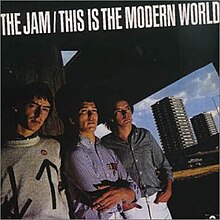
The Jam were an English rock band formed in 1972 in Woking, Surrey. They released 18 consecutive top 40 singles in the United Kingdom, from their debut in 1977 to their break-up in December 1982, including four number one hits. As of 2007, "That's Entertainment" and "Just Who Is the 5 O'Clock Hero?" remain the best-selling import singles of all time in the UK. They released one live album and six studio albums, the last of which, The Gift, reached number one on the UK Albums Chart. When the group disbanded in 1982, their first 15 singles were re-released and all placed within the top 100.

Paul John Weller is an English singer-songwriter and musician. Weller achieved fame with the band the Jam in the late-1970s. Following the dissolution of the Jam in 1982, he changed musical style and had further success with the Style Council (1983–1989), before establishing himself as a solo artist with his eponymous 1992 album.
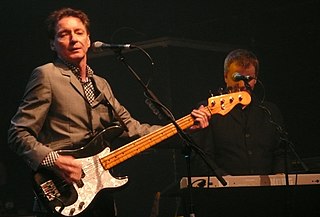
Bruce Douglas Foxton is an English singer, songwriter and musician.

All Mod Cons is the third studio album by the British band the Jam, released in 1978 by Polydor Records. The title, a British idiom one might find in housing advertisements, is short for "all modern conveniences" and is a pun on the band's association with the mod revival. The cover is a visual joke showing the band in a bare room. The album reached No. 6 in the UK Albums Chart.

In the City is the debut studio album by British band the Jam. Released in May 1977 by Polydor Records, the album reached No. 20 on the UK Albums Chart.

Setting Sons is the fourth studio album by the English rock band the Jam, released on 16 November 1979 by Polydor Records. It reached No. 4 in the UK Albums Chart upon the first week of release, continuing the commercial favour that had begun with their previous album All Mod Cons.

Sound Affects is the fifth studio album by English rock band the Jam. The album was released on 28 November 1980 by Polydor Records. It is the only Jam album to be co-produced by the band themselves, and contains the only album track co-written by the entire band, "Music for the Last Couple".
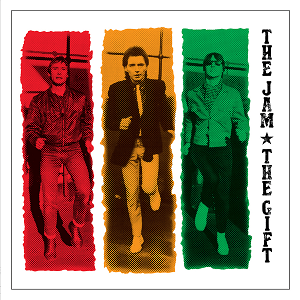
The Gift is the sixth and final studio album by English new wave/mod revival band the Jam. It was originally released on 12 March 1982 by Polydor as the follow-up to the Jam's critically and commercially successful 1980 album Sound Affects. The songs were largely recorded during 1981 to 1982, at George Martin's Air Studios, assisted by Peter Wilson. Generally regarded as the culmination of the smoother sound of the band's later work, it was one of their most successful studio albums, reaching No. 1 in the UK Albums Chart.

Live Cream Volume II is the second live album by the British rock band Cream, released in March 1972 by Polydor Records. This album contains six tracks recorded at various performances from 9 March to 4 October 1968.
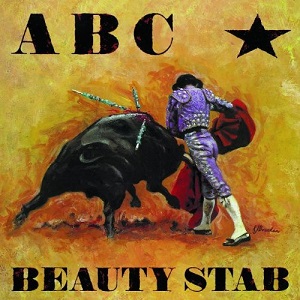
Beauty Stab is the second studio album by English pop band ABC, released on 14 November 1983 by Neutron Records, Mercury Records and Vertigo Records. The album was recorded over a period of three months between August and September 1983, in sessions that took place at Sarm Studios East and West, Townhouse Studios and Abbey Road Studios. It was a departure from the stylised production of the band's debut studio album, The Lexicon of Love (1982), and featured a more guitar-oriented sound.

"Funeral Pyre" is The Jam's thirteenth single released on 29 May 1981. Backed by the B-side "Disguises", a cover of a Who track, it reached No. 4 in the UK Singles Chart.

"Beat Surrender" was the Jam's final single, and was released on 22 November 1982. It became the band's fourth and last No. 1 hit in the UK Singles Chart for two weeks in December 1982.

Direction Reaction Creation is an anthology issued in 1997 by the British band The Jam. It includes 117 tracks over 5 discs, including all of the songs from their singles and six studio albums. The box set reached number 8 in the UK Albums Chart.

Play It Loud is the second studio album by the British rock group Slade. It was released by Polydor in November 1970 but did not enter the charts. The album, produced by Chas Chandler, was the first to be released under the Slade name, as the band's 1969 debut Beginnings was released under the name Ambrose Slade.

Sladest is a compilation album by the British rock band Slade. It was released by Polydor on 28 September 1973 and was certified UK Silver by BPI that month. It remained in the charts for 24 weeks. The album was certified UK Gold by BPI in November 1973. In America, Sladest was released by Reprise and featured a significantly different track listing. It reached No. 129 on the Billboard 200.

Say It Ain't So is the second studio album by Murray Head. It was released in 1975 on A&M Records. The album was produced by Paul Samwell-Smith, and the album features sleeve photography by Gered Mankowitz.
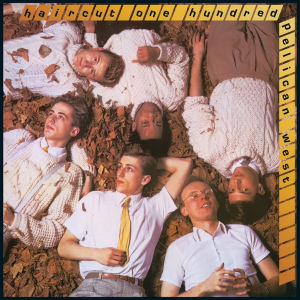
Pelican West is the debut studio album by the British new wave band Haircut One Hundred, released on 26 February 1982 by Arista Records. It peaked at No. 2 on the UK Albums Chart and No. 31 on the Billboard 200, and was certified platinum by the British Phonographic Industry (BPI).
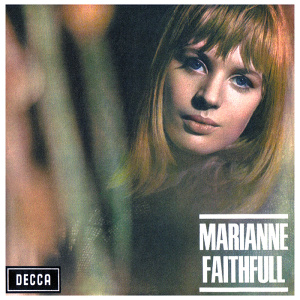
Marianne Faithfull is the debut studio album by English singer Marianne Faithfull. It was released simultaneously with her album Come My Way on 15 April 1965 by Decca Records. The double release was a result of different creative directions. While the record label pressed Faithfull to record a pop album, she wanted to record an album of folk songs. Even after the label suggested an album containing both genres, Faithfull decided to make two separate albums instead; Marianne Faithfull as the pop album and Come My Way as the folk album. In the United States, it was released by London Records with a slightly different track list and inclusion of the song "This Little Bird".
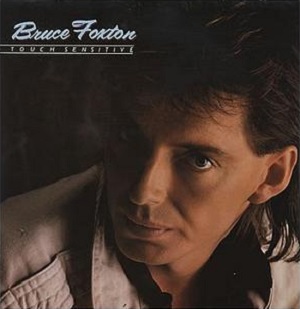
Touch Sensitive is the debut solo studio album by English rock musician Bruce Foxton, released on 12 May 1984 by Arista Records. Two tracks, "It Makes Me Wonder" and "Trying to Forget You " were co-written by Foxton and Pete Glenister. The remainder of the songs are credited solely to Foxton himself. In March of the same year, fellow Jam counterpart Paul Weller released his first official studio album with the band the Style Council, titled Café Bleu. The album was notably his last recording of original material for twenty-eight years, until he released Back in the Room in 2012. Keen to establish himself as a solo artist after the breakup of the Jam, Foxton enlisted producer Steve Lillywhite to give the album a contemporary sound.

Shakin' Stevens is the debut solo album by Welsh rock and roll singer Shakin' Stevens, released in April 1978 by Track Records.
